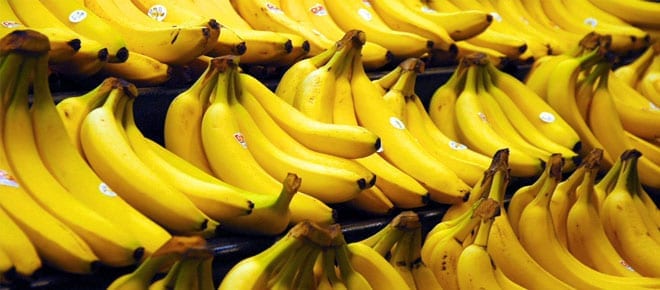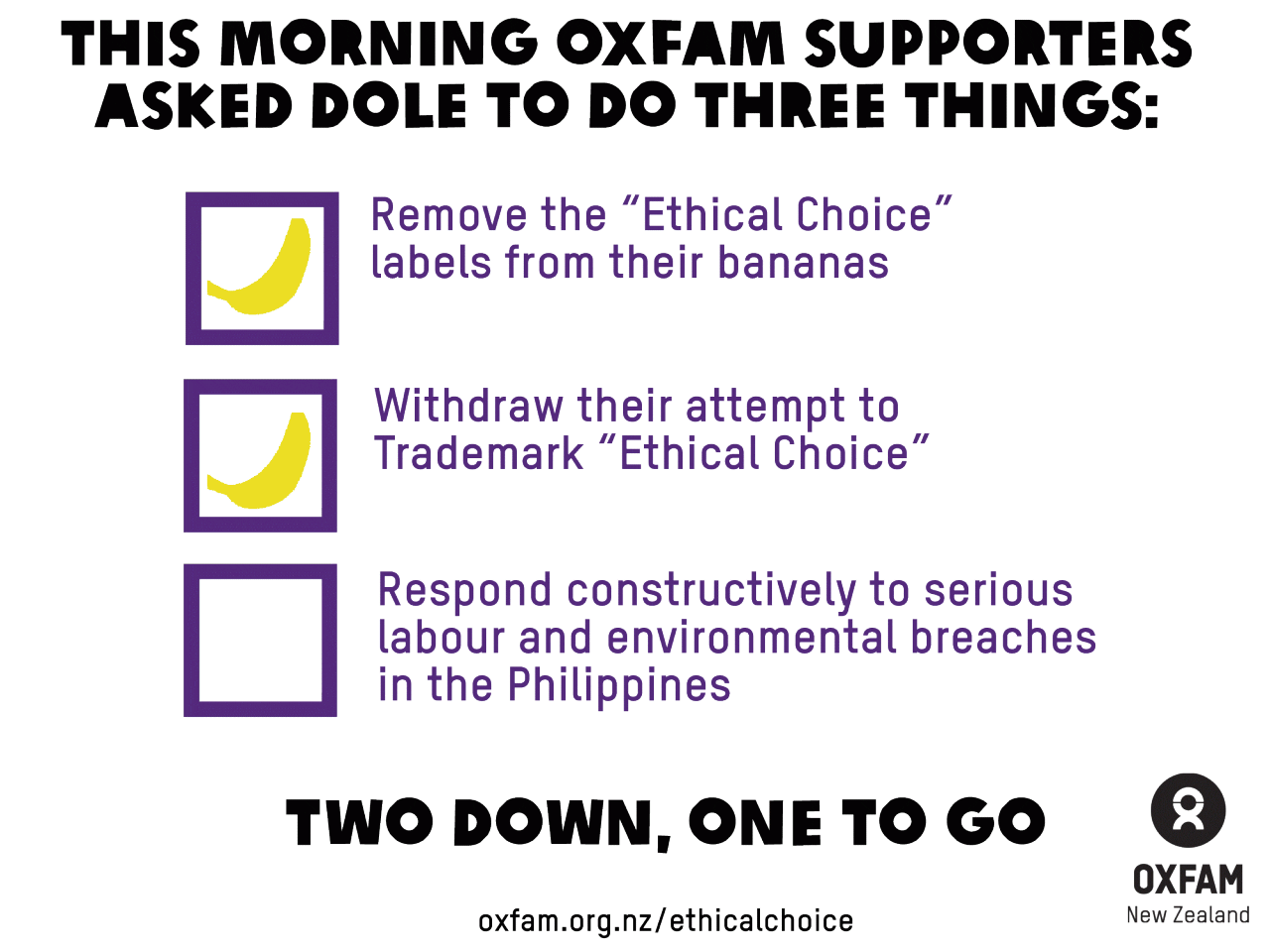On the very same day that Oxfam released a report highlighting disturbing labour and environmental issues on Philippine banana plantations, Dole has agreed to discontinue use of its “Ethical Choice” label and withdraw its application to trademark the term.

On the very same day that Oxfam released a report highlighting disturbing labour and environmental issues on Philippine banana plantations, Dole has agreed to discontinue use of its “Ethical Choice” label and withdraw its application to trademark the term.
|
“We hope that this is the start of a process that will improve conditions for people who are working hard to grow the bananas we eat.” |
Executive Director of Oxfam New Zealand, Barry Coates, said, “We welcome this announcement. This is great news for New Zealanders. Dole has realised that the public won’t accept marketing spin and self-made claims.
“More importantly, we hope that this is the start of a process that will improve conditions for people who are working hard to grow the bananas we eat. Our concern lies with the women, children and men in the Philippines who are struggling to get by under conditions we would never tolerate for ourselves – child labour, toxic pesticide exposure, workers paid below a living wage, and a denial of rights to form independent trade unions – these are unacceptable regardless of whether they happen in Manukau or Mindanao.
“While we welcome Dole’s decision to discontinue using the ‘Ethical Choice’ label, we are disappointed that Dole is not being more constructive in addressing very serious problems identified in the research report. We are still waiting for Dole’s substantive response to this report sent to them four weeks ago. We and the researchers are very willing to engage with Dole in order to ensure worker’s rights are respected and conditions are improved in their banana supply chain.
“Today we’ve seen an outpouring of public concern around the issues of confusing labels and exploitation of workers. This is a demonstration of how consumer power can lead to better lives for farmers in developing countries,” said Coates.




